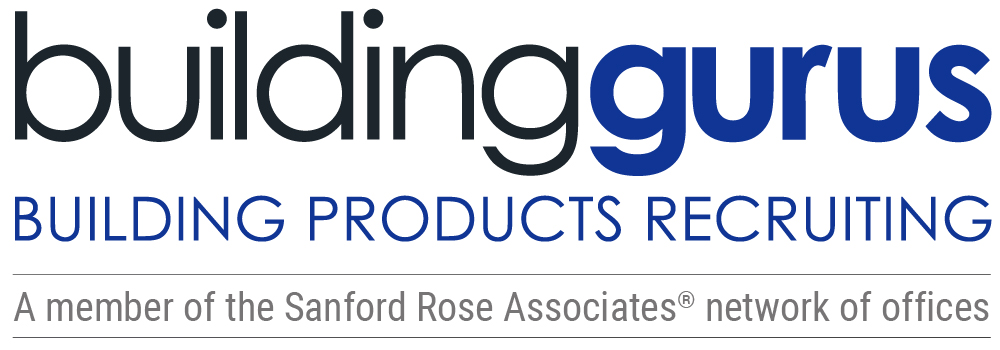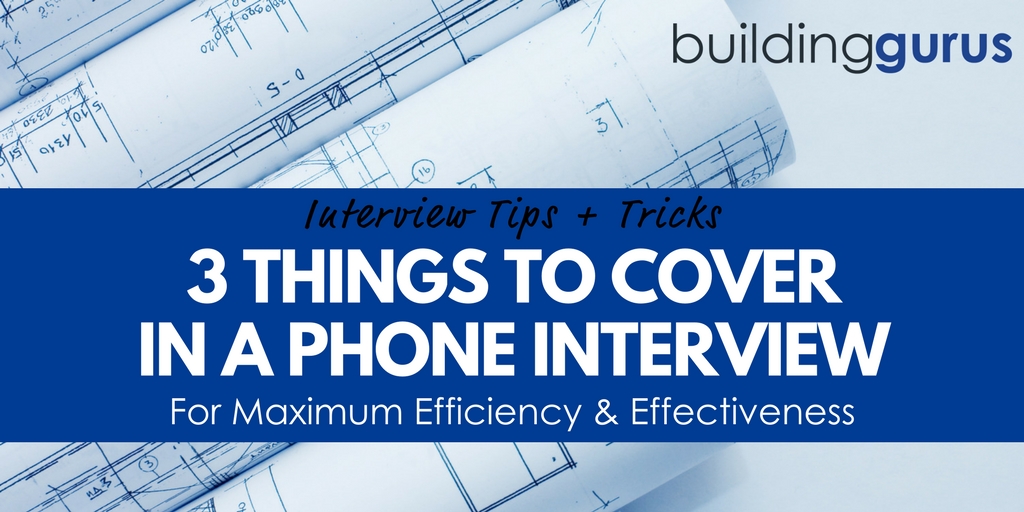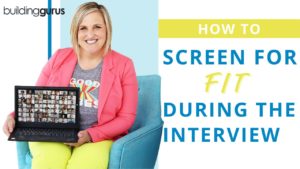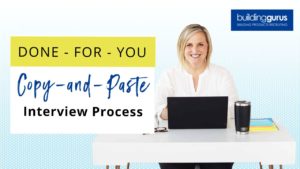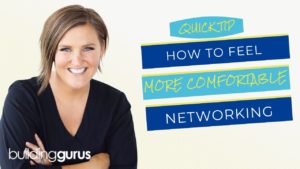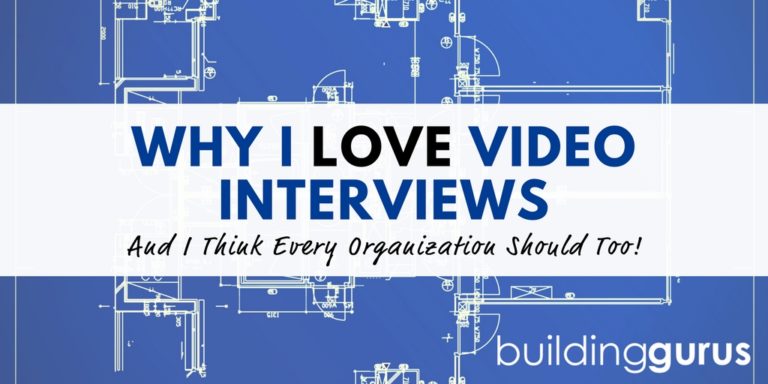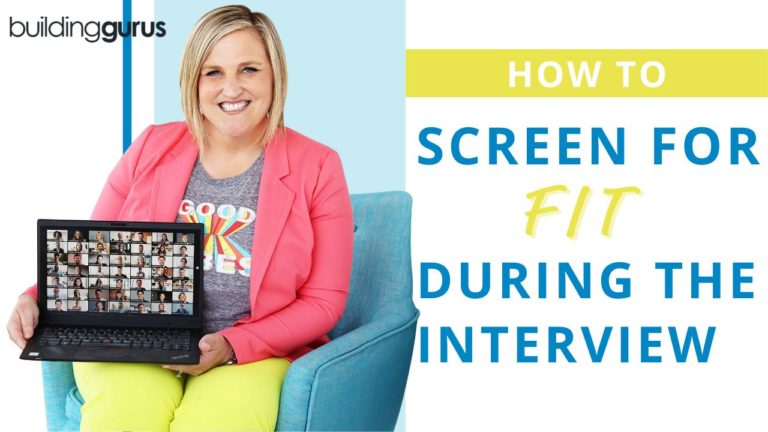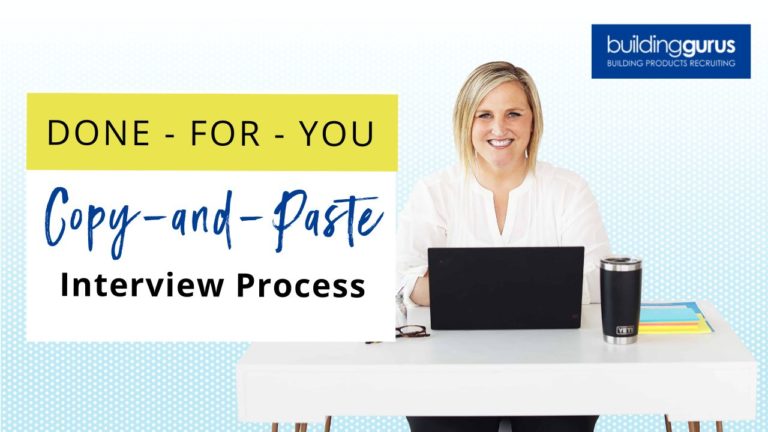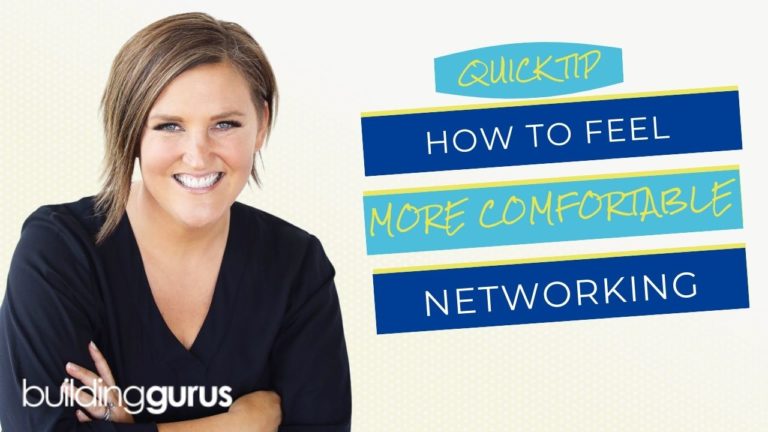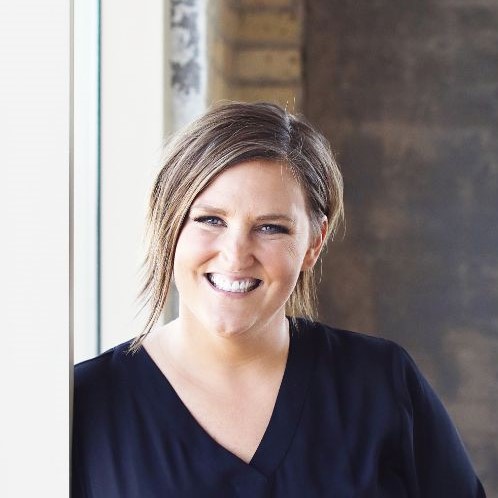As a residential building products recruiter, my main goal is finding suitable candidates who are able to make progress quickly. I love phone interviews (sorry if you are sick of me singing their praises!) and I find that I have settled on a pattern of 3 things I need to cover in each one.
3 Things To Cover In A Phone Interview
I know past performance indicates future success, so I focus most of my interview time on what they have accomplished. I have to discuss details of the role, make sure I have their interest and talk about deal breakers.
There is an easy flow I follow on my calls and I want to share it with you!
Pre-Work And Preparation
A quick word about phone interview length. My first call is typically between 10-30 minutes. Most of my candidates have 1-4 interviews with the company on top of conversations with me. I don't want anyone getting tired in the beginning!
So, how can I do a 10-minute call and cover everything?
By being prepared. I'll have jotted down specific questions based on a thorough review of their resume (in addition to my 10-second review) so I know what to cover and what to skip. I stick to the pre-requisites & requests from my clients.
Also, I try to do a lot of pre-work for my interviews. I utilize checklists and questionnaires so some of my deal breakers are covered beforehand. Or, I provide candidates with some information before we meet.
Phone interviews are supposed to be short and focus on finding candidates with the necessary abilities. So can they do the job – not how well will they do it.
What I Cover
Let's get to the fun part!
The Role
I talk about the role briefly but offering the key details. Again, hiring managers will cover these in depth and since they work for the company, they'll do it much better than I can. I cover the challenges in the role, the success factors necessary and the wins. I talk about the specific logistics of the role – who they report to, what they'll do, etc.
Gauge Interest
Once I have talked about the role, I pause and make sure the candidate is still interested. You'd be surprised how many times after a 2-minute spiel the candidate knows it isn't for them. I usually just say “Now that I have talked about the role, are you still interested?”
Deal Breakers
Here is more on deal breakers. I say “I have a couple of things I want to cover that will help us to know we are both on the same page.” And then I talk about the deal breakers and ask any necessary questions.
Gauge Interest Pt. 2
Again, find out if the candidate is still interested before you go any further. This time it is usually “Does everything still sound like a fit for what you want?”
Resume Walk Through
I either ask questions walking through their resume or ask them to talk me through it. I start with the first job related to the residential building products industry. In other words, I don't usually start with their summer job in High School unless it is pertinent.
If I want them to walk me through it, I say “I'd like you to start with XYZ position and walk me through your resume to your current role. Tell me a bit about the role, what you did and how you excelled and then talk about why you left.”
If there is something they don't cover, this is the time to ask.
Ending The Call
If I will be submitting them to my client, I share more information and answer questions. If it is a preliminary conversation, I don't ask if they have questions.
Why?
If this is a first interview step, I might be talking to 20-30 people so part of it simply a time factor. Or, if they aren't a fit, I don't want to spend 45 minutes talking through everything.
If you are using a phone interview as a preliminary step, I would suggest you think about that. I say something like “Thank you for speaking with me, I appreciate all the information you shared. I need to finish up some interviews and I will be in touch with you next week about next steps.”
If they ask questions, I give a brief answer and then say, “I am glad you are interested, we will definitely cover all of this information in the next round of interviews.”
Following this outline, you should find your phone interviews going more smoothly and being briefer. Just remember to cover what you need to know and be prepared.
